It's crucial to back up your Windows Server 2016 to protect your valuable data. The simplest, most convenient, and most dependable backup method involves using an external hard drive. This article will guide you through two straightforward methods to back up your Windows Server 2016 to an external hard drive using EaseUS Todo Backup Enterprise and Windows Server Backup.
Before starting the backup process, ensure you have selected an external hard drive and connected it to your Windows Server. It's also essential to ensure the drive has adequate capacity for your server's data and that it's recognized by your computer.
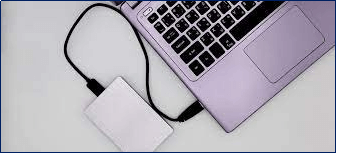
Backup with EaseUS Todo Backup Enterprise
EaseUS Todo Backup provides a variety of features for Windows server backup, including system, disk, partition, folder, and even active directory backups. It also offers an efficient recovery function, enabling you to restore your backup data as needed. Additionally, it permits users to choose different storage paths, including an external disks, and provides comprehensive options for customizing your backup task as per your preference.
EaseUS Todo Backup Enterprise, with its user-friendly interface easy, and robust safety measures, is often users' first choice for data backup. Here's a guide on how to utilize it to back up Windows Server 2016 to an external disk.
1. Create a Task
Click on New Task on the left hand side to create a backup task.
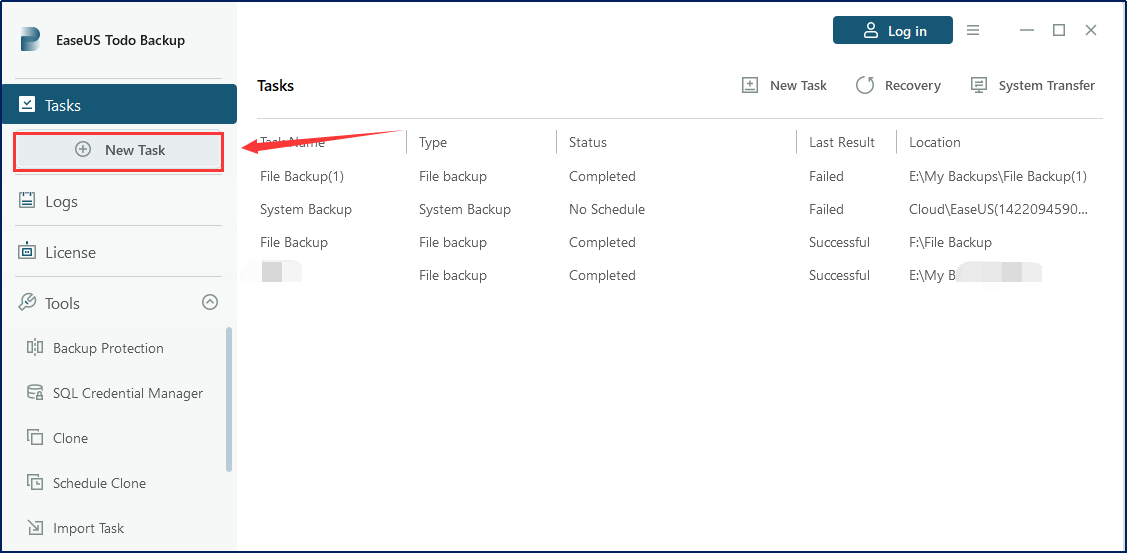
2. Choose the Backup Data
Select the specific Windows Server data that you wish to safeguard to prevent future data loss. You have the option to back up your disks, files, mail, etc. according to your preference.
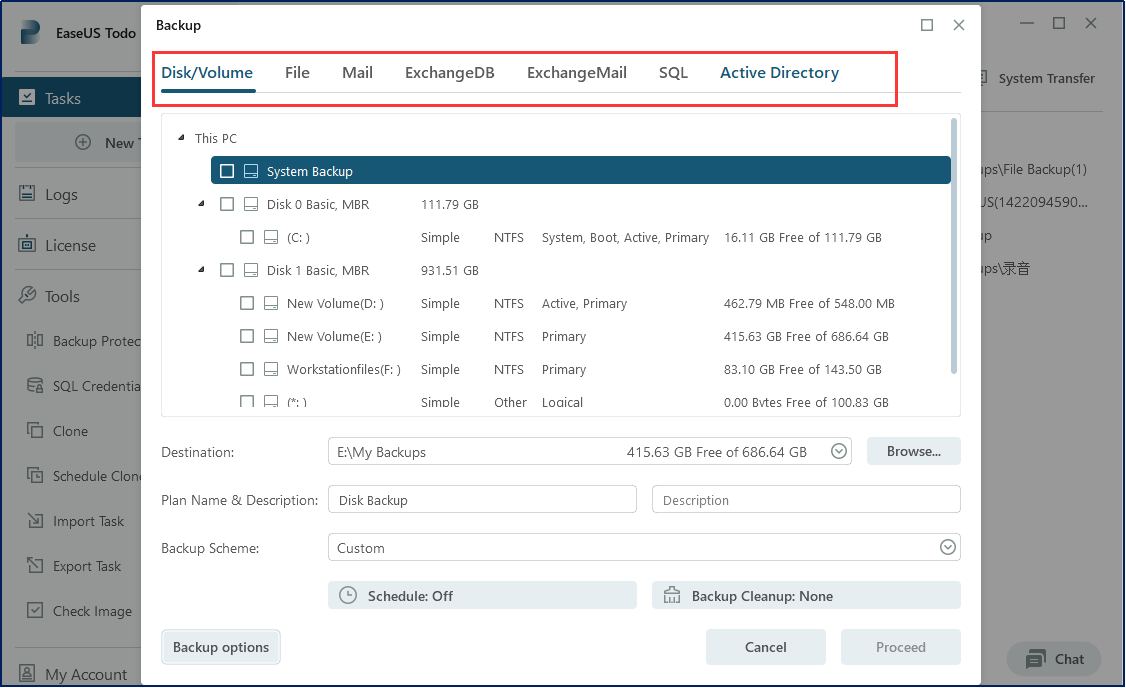
3. Select a Storage Path
Choose the destination as your prepared external disk to save the backup data by clicking on Browse....Then click Computer to locate the target disk. Once you’ve done this, please click OK.
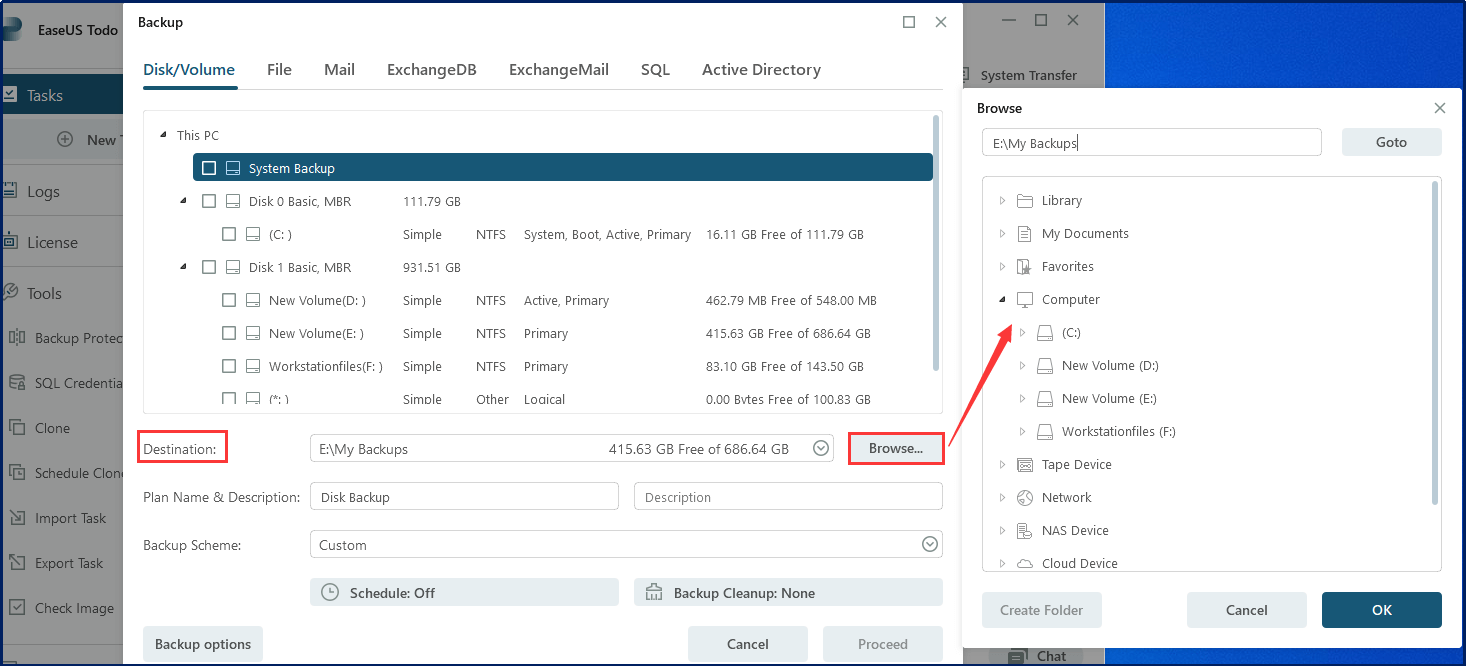
Please note that this product supports both on-premise and cloud backups. If you have additional desired backup locations, you can select them to create backups of your data.
4. More Options to Perfect the Task
There are other options to help customize your backup tasks:
You can clearly differentiate your backup task with Plan Name& Description.
The Backup Schedule option allows you to set up a regular backup task to be executed one-time, daily, weekly or monthly. You can also set backup types as full, incremental or differential, all based on your requirements.
You can also optimize storage space usage with the Backup Cleanup option.
Furthermore, the Backup options provides more features to further refine and perfect your backup task, such as the performance and encryption options etc.
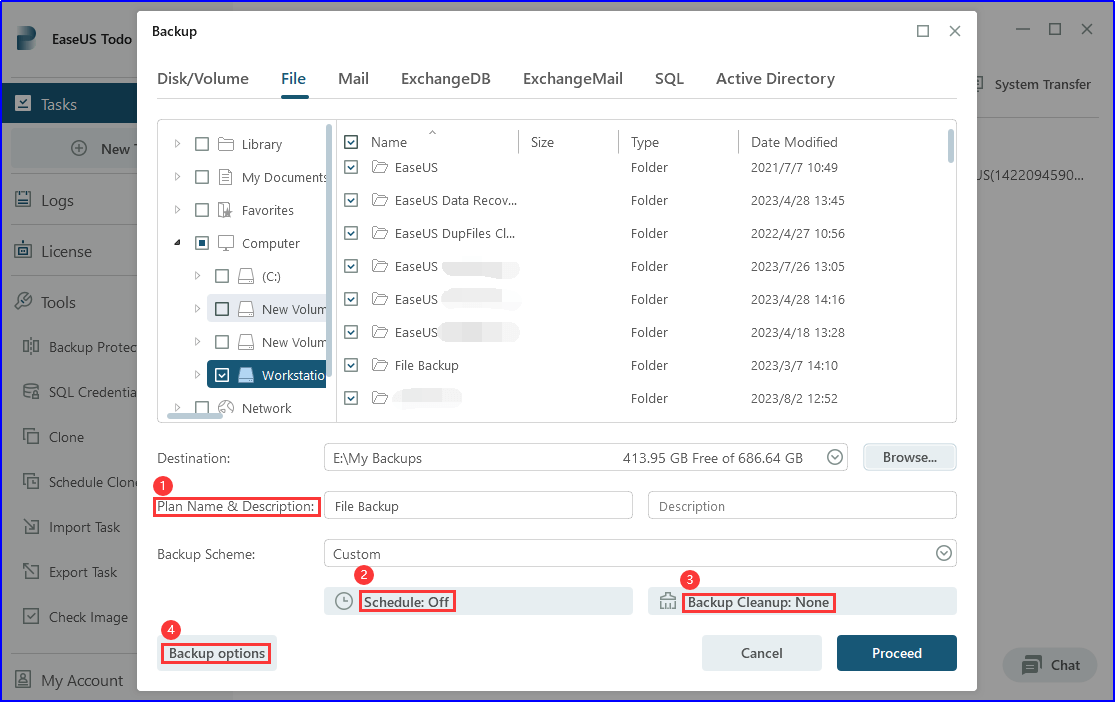
Once your backup task is configured, please click Proceed to initiate the backup of your Windows Server 2016 and then the backup data will be saved to your external disk.
Backup with Windows Server Backup
Windows Server includes a built-in feature, Windows Server Backup, that also simplifies the backup process. Please follow the outlined steps below to back up your Windows Server to an external disk.
1. Open Windows Server Backup
Click on the Windows Server Start menu and search for Windows Server Backup. Once the application appears, click on it to open.
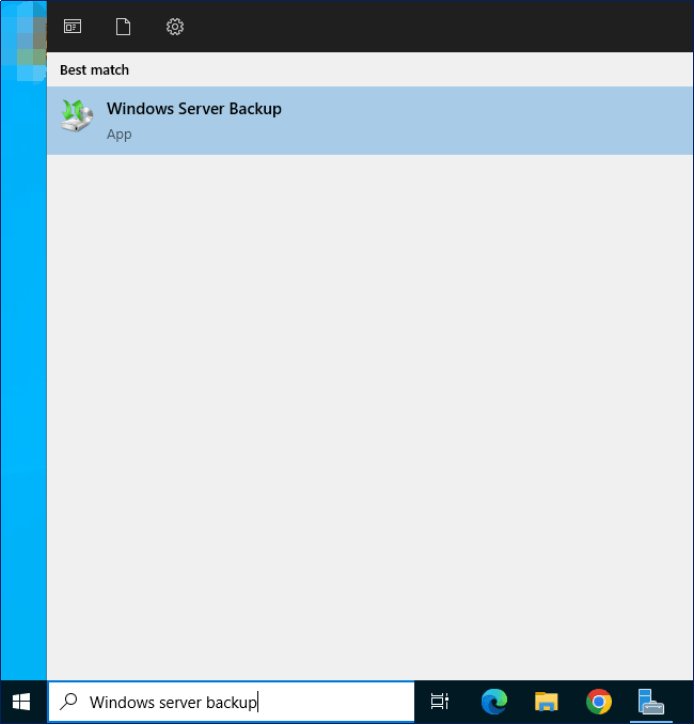
If it is not installed, please add the feature through the Server Manager.
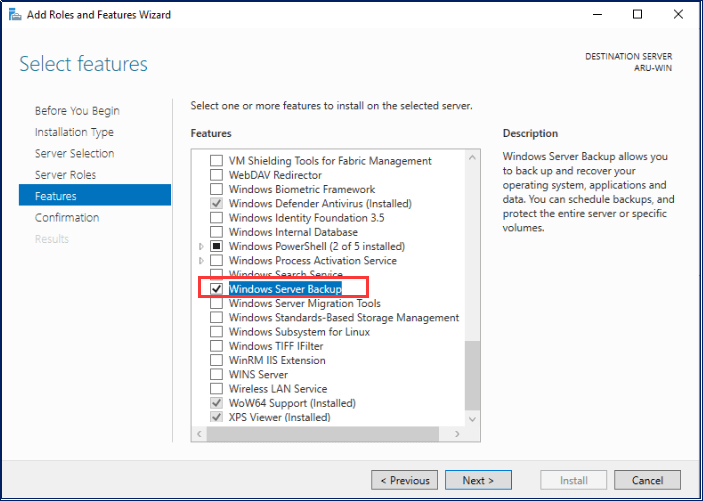
2. Start the Backup Wizard
In the console, click on the Local Backup node on the left hand side and click on Backup Schedule...under the Actions pane. Once done, click Next to move forward.
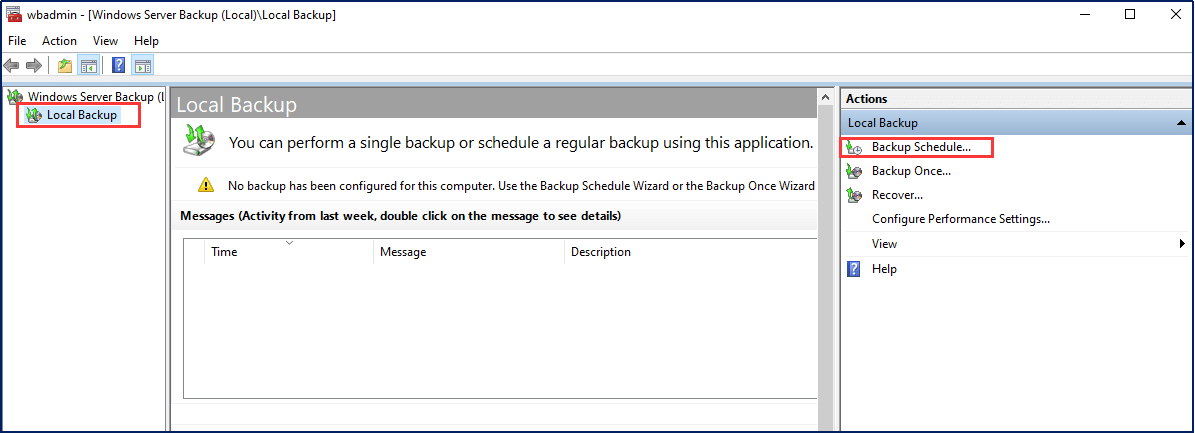
3. Choose Backup Type
In the Backup Wizard, choose the type of backup you wish to perform. Windows Server 2016 offers Full server and Custom volume backup. Choose a backup configuration and click Next to proceed.
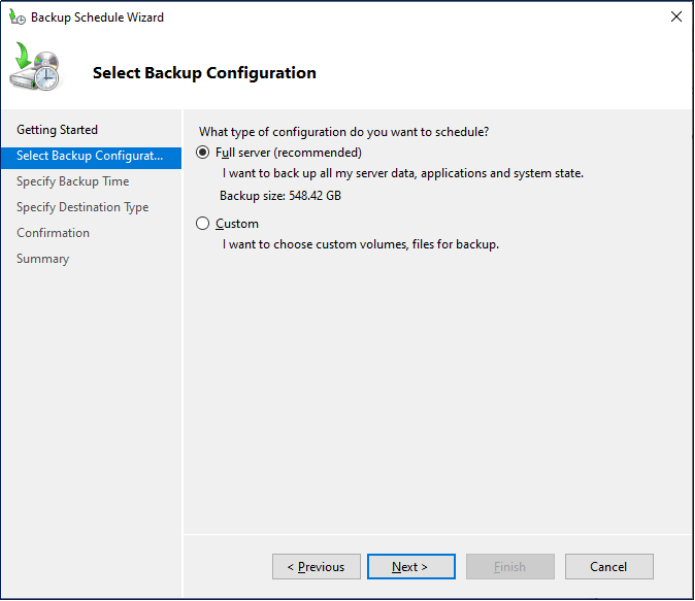
4. Specify Backup Time
The aforementioned process will direct you to the backup time setting options. Adjust the frequency of the backup according to your requirements. You have the flexibility to schedule backups for your data either once a day or multiple times during the day. Once your selection is made, click Next to proceed.
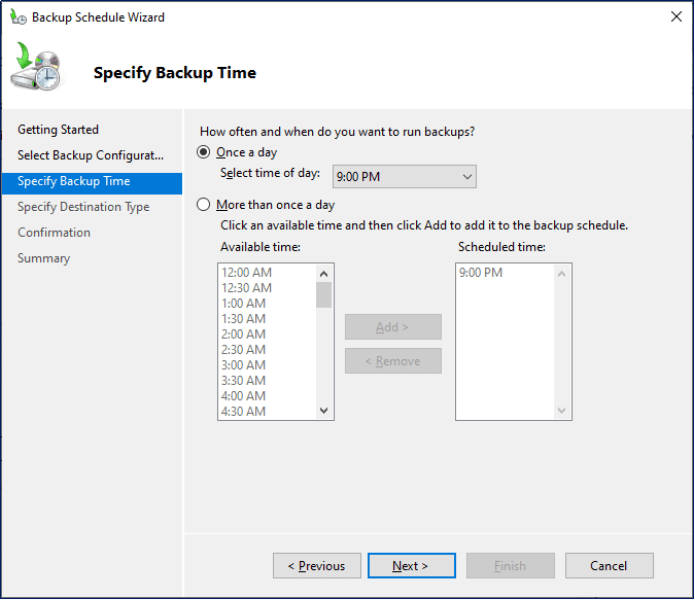
5. Specify Backup Destination
Please choose Backup to a hard disk that is dedicated for backups, which helps save your Server data to your external disk. Once the location is selected, click Next.
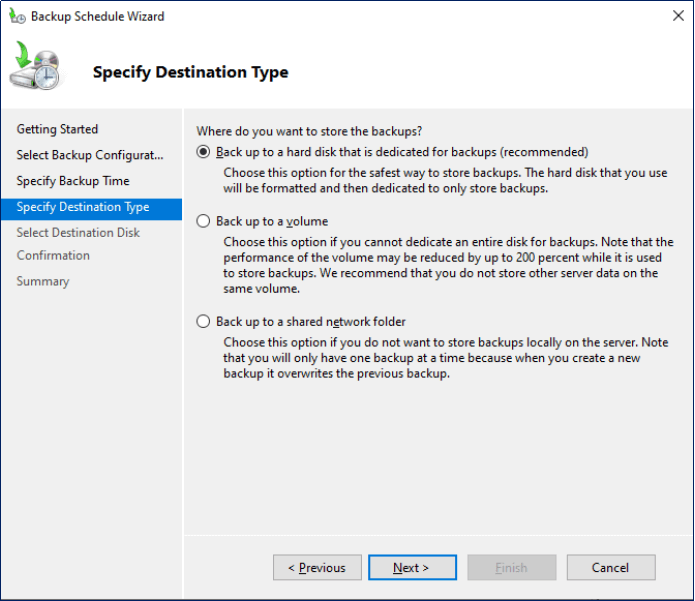
A notification will appear, indicating that your selected disks will be reformatted and any data on them will be erased. Please consider this carefully before clicking Yes to continue.
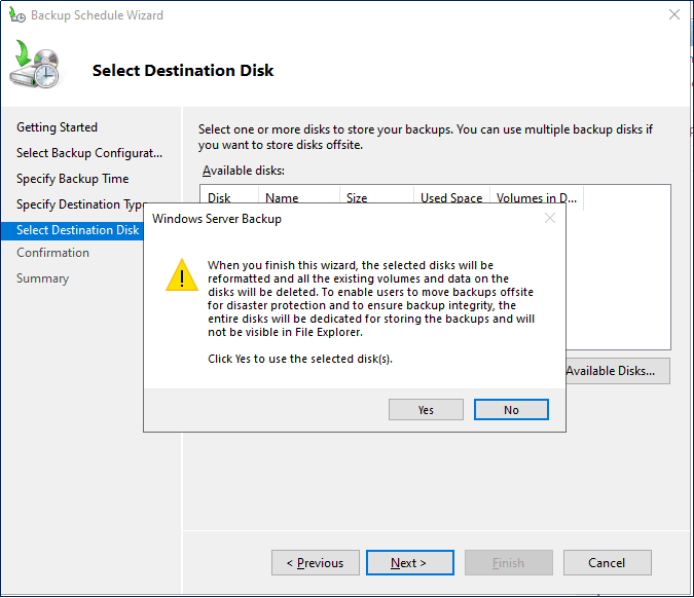
6.After completing the above steps, click Finish to perform the backup.
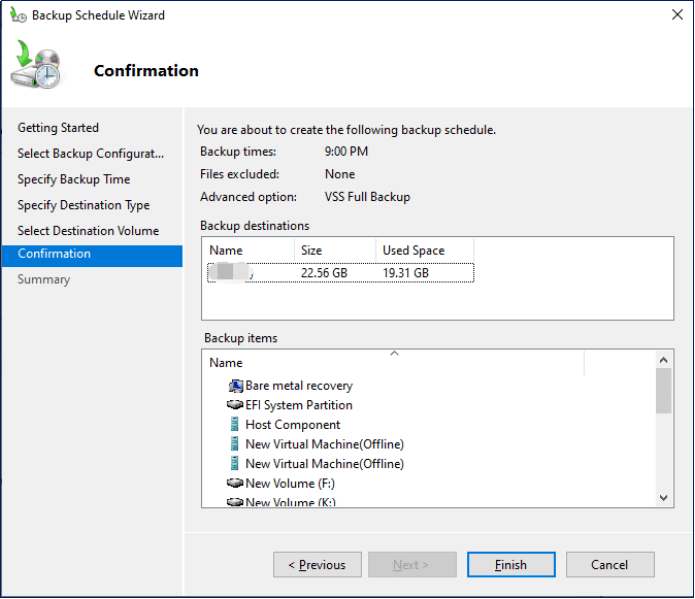
Conclusion
Backing up your Windows Server 2016 to an external disk ensures your data's safety and availability, minimizing the risk of data loss. The two methods described above can help achieve your objectives. While Windows Server Backup offers basic data backup functions, EaseUS Todo Backup provides a more user-friendly, easy and comprehensive solution for data backup. If you are an administrator, it's highly recommended to use the EaseUS backup tool for the protection of your Windows Server.
How to Back up Windows Server 2016 to External Hard Drive FAQs
1. What is a Windows Server backup?
Windows Server Backup is a feature that comes built-in with Windows Server operating systems. It provides a simple solution for admins to backup and restore their server's data.
2. Can I use an external HDD on server?
Yes, you can use an external HDD on a server for backup or extra storage. Before connecting the external HDD, make sure it is compatible with your server's operating system and has enough capacity for your backup or storage needs. Always remember to safely eject the HDD when you're finished using it to prevent data loss or corruption.
3. What are the backup strategies in server?
There are mainly three types of backup:
Full Backup: It involves backing up all files and folders within a system.
Incremental Backup: With this strategy, only the files that have been changed or created since the last backup are saved.
Differential Backup: This strategy backs up only the files that have changed since the last full backup.
4. How often should you backup Windows Server?
The frequency of backing up your Windows Server largely depends on the criticality of your data and how often it changes. If the data is highly critical and changes very frequently, daily backups or even multiple times a day might be necessary. For less critical data or data that doesn't change often, weekly or monthly backups might be sufficient.
Was This Page Helpful?
Daisy is the Senior editor of the writing team for EaseUS. She has been working at EaseUS for over ten years, starting as a technical writer and moving on to being a team leader of the content group. As a professional author for over ten years, she writes a lot to help people overcome their tech troubles.
Written by Gap
Gap has been working as an experienced data backup and security engineer at EaseUS for over 10 years, focusing on working with clients to assess needs and implemented procedures and tasks for appropriate backup solutions.
-
Taking everything into consideration, we can say that EaseUS Todo Backup Home can offer you a little extra sense of security with a set of advanced tools. The interface provides quick adaptation, every process guiding you all the way through so you don't get stuck or further damage your system rather than keeping it safe.
Read More -
EaseUS Todo Backup Free lets you create backups of your important files or your entire computer through its streamlined interface. Just choose the backup type you'd like to get started, and let the program do the reset.
Read More -
EaseUS includes all the features I expect from backup software like versioning, incremental backups, and scheduling. For more advanced users, EaseUS allows you to install a pre-boot environment onto your hard drive so you can use it to restore files without burning a CD or putting it on an external USB drive.
Read More
Related Articles
-
Endpoint Backup Solutions for Enterprise
![author icon]() Gap/2026/01/21
Gap/2026/01/21 -
How to Backup Multiple Computers to One Hard Drive
![author icon]() Gap/2026/01/21
Gap/2026/01/21 -
How to Backup Windows Server 2022 to a USB drive
![author icon]() Gap/2026/01/21
Gap/2026/01/21 -
How to Discover the Best Backup Monitoring Software
![author icon]() Gap/2026/01/21
Gap/2026/01/21

EaseUS Todo Backup
Smart backup tool for your files and entire computer in Windows 10/8/7.
Install Windows on Multiple Computers at Once? No Problem!
Learn how to install Windows 11/10/7 and special programs/software on a batch of computers. Use 10 minutes to do the 10 hours work without making a single mistake!
Get Free Solution!Hot Topics
